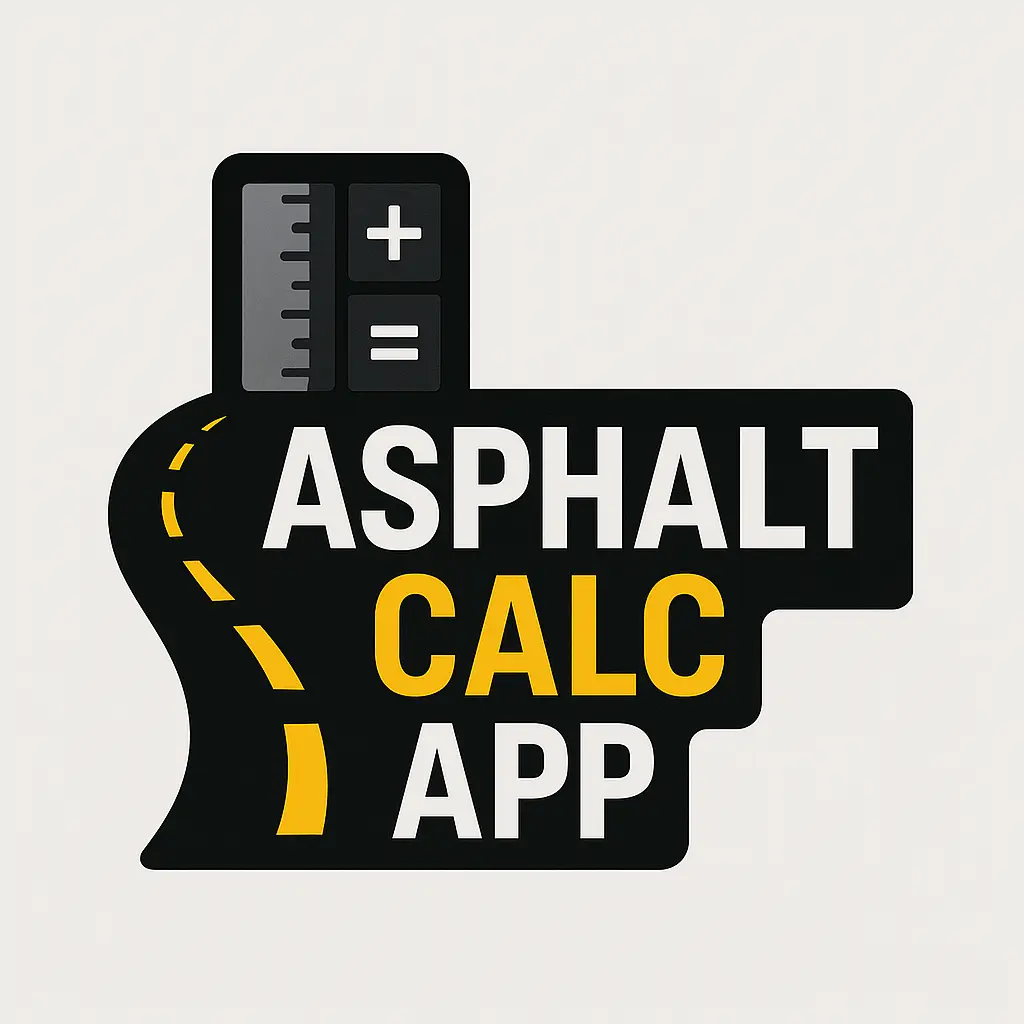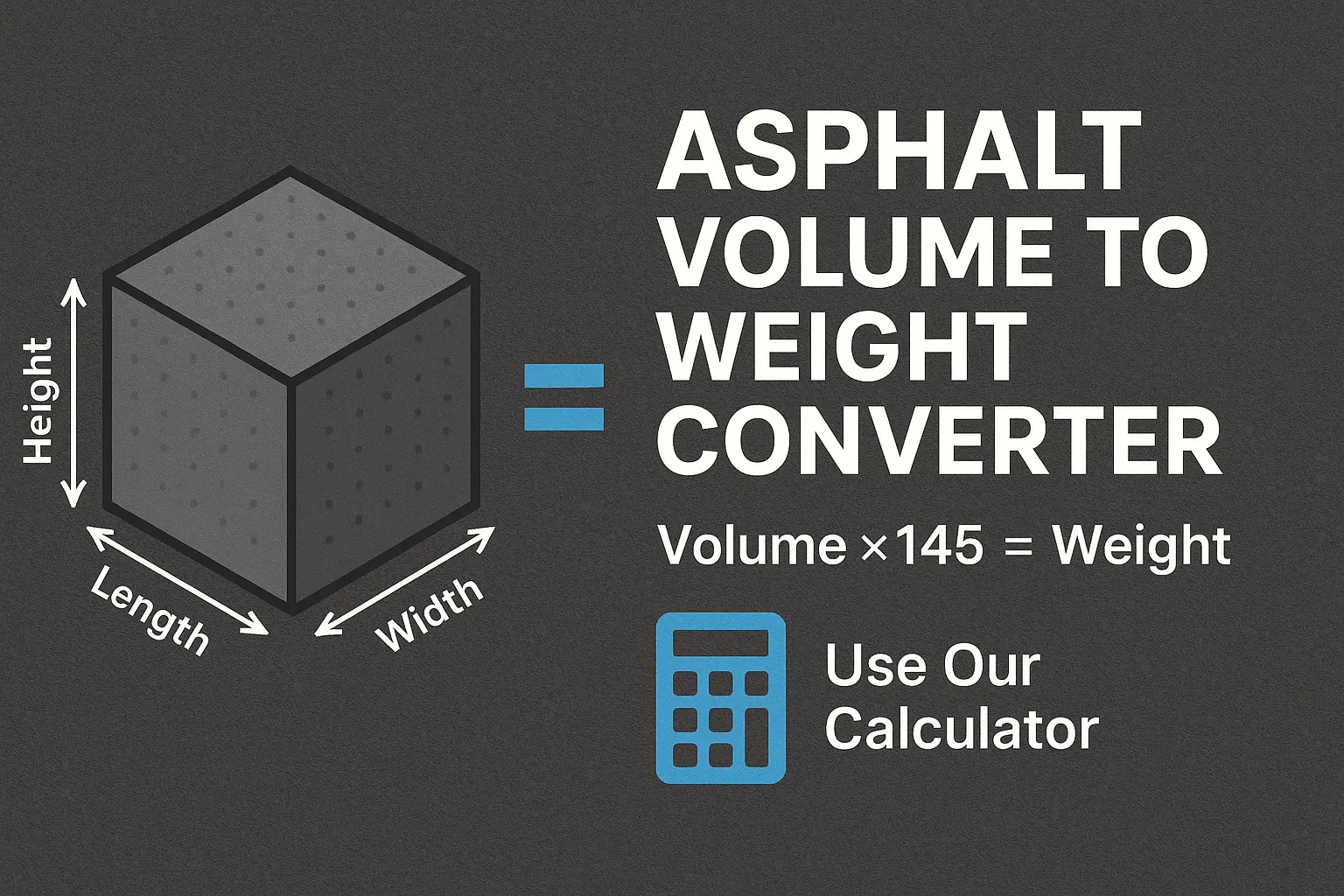Introduction
Converting asphalt volume to weight is a crucial step in estimating how much material you need for paving projects like driveways, parking lots, or roads. Whether you’re a contractor or a homeowner, understanding how to calculate asphalt weight from its volume accurately helps save costs, prevent material shortages, and ensure a smooth project.
In this comprehensive guide, we’ll break down the formulas, walk you through how to use an asphalt volume to weight converter, and show you how to avoid common mistakes. There are also links to free calculators and other tools that will help you with your work.
1. What Is Asphalt Volume to Weight Conversion?
When planning a paving project, you often start by measuring the area in square feet and calculating the volume in cubic feet or cubic yards. However, asphalt is purchased and transported by weight (in tons or pounds), not volume.
This is where an asphalt volume-to-weight converter comes in. It helps you convert from cubic feet or yards to pounds or tons using asphalt’s density.
2. Why Accurate Conversion Matters
✅ Saves money: Ordering the right amount of material reduces waste.
✅ Avoids delays: Ensures you have enough asphalt to complete the project.
✅ Ensures compliance: Many municipal projects require accurate estimates for permits and logistics.
3. How to Change the Volume of Asphalt into Weight
To change the volume of asphalt into weight, you need to know how much space your project takes up and how dense the asphalt is.
🔹 Basic Formula (in pounds):
🔹 Basic Formula (in tons):
4. Asphalt Density: What You Need to Know
Standard asphalt density is approximately 145 pounds per cubic foot (lb/ft³).
| Asphalt Type | Density (lb/ft³) | Density (kg/m³) |
|---|---|---|
| Hot Mix Asphalt (HMA) | 145 | 2320 |
| Cold Mix Asphalt | 125–135 | 2000–2160 |
| Recycled Asphalt (RAP) | 130–140 | 2080–2240 |
Note: Always confirm with your supplier for the exact density.
5. Step-by-Step Example
Let’s say you’re resurfacing a driveway that is:
-
Length: 30 feet
-
Width: 15 feet
-
Thickness: 3 inches (0.25 feet)
Step 1: Calculate Volume
Step 2: Multiply by Asphalt Density
Step 3: Convert to Tons
So, you’ll need approximately 8.2 tons of asphalt.
6. Using an Asphalt Volume to Weight Calculator
Manual calculations are helpful, but using an online calculator is faster and reduces the risk of error.
👉 Try our free tool here: Asphalt Weight Calculator
👉 For full project estimates: Asphalt Driveway Cost Estimator
Just enter your dimensions and get instant results in pounds, tons, and cost.
7. Asphalt Weight Estimation Chart
| Area (sq ft) | Thickness (inches) | Volume (ft³) | Weight (lbs) | Weight (tons) |
|---|---|---|---|---|
| 500 | 2 | 83.3 | 12,083 | 6.04 |
| 800 | 3 | 200 | 29,000 | 14.5 |
| 1000 | 4 | 333.3 | 48,328 | 24.16 |
8. Common Mistakes to Avoid
❌ Ignoring compaction – Asphalt is compacted by about 10%, so account for extra material.
❌ Incorrect density use – Don’t assume all asphalt is 145 lb/ft³; confirm type and density.
❌ Skipping conversions – Forgetting to convert cubic inches or yards to cubic feet can mess up estimates.
9. How to Estimate Asphalt Weight for Driveways
Use the following formula for most asphalt driveways:
✔️ This shortcut is based on standard density and is quick for contractors.
✔️ Add 5-10% extra material for compaction and leveling.
10. FAQs: Asphalt Volume to Weight Converter
❓ How to calculate asphalt from volume?
Use the formula:
❓ How much does a cubic yard of asphalt weigh?
Approximately 2.025 tons (4,050 lbs).
❓ Is asphalt weight affected by temperature?
Yes, slightly. Hot asphalt expands, while cold asphalt contracts—but the difference is minor for most calculations.
❓ How accurate are online calculators?
They are highly accurate when you input the correct dimensions and density. Always verify default density settings.
❓ What’s the easiest way to convert volume to tons?
Use an asphalt volume-to-weight converter. It saves time and reduces the chance of manual errors.
11. Final Thoughts
Accurately converting asphalt volume to weight is essential for a successful paving project. Whether you’re laying a new driveway, resurfacing a parking lot, or calculating materials for roadwork, knowing how much asphalt you need keeps your project running smoothly.
Utilize tools like AsphaltCalcApp to estimate asphalt tonnage, weight, and cost quickly. With a better understanding of how to use asphalt volume to weight converters and related formulas, you’ll be better prepared, more efficient, and more cost-effective.


